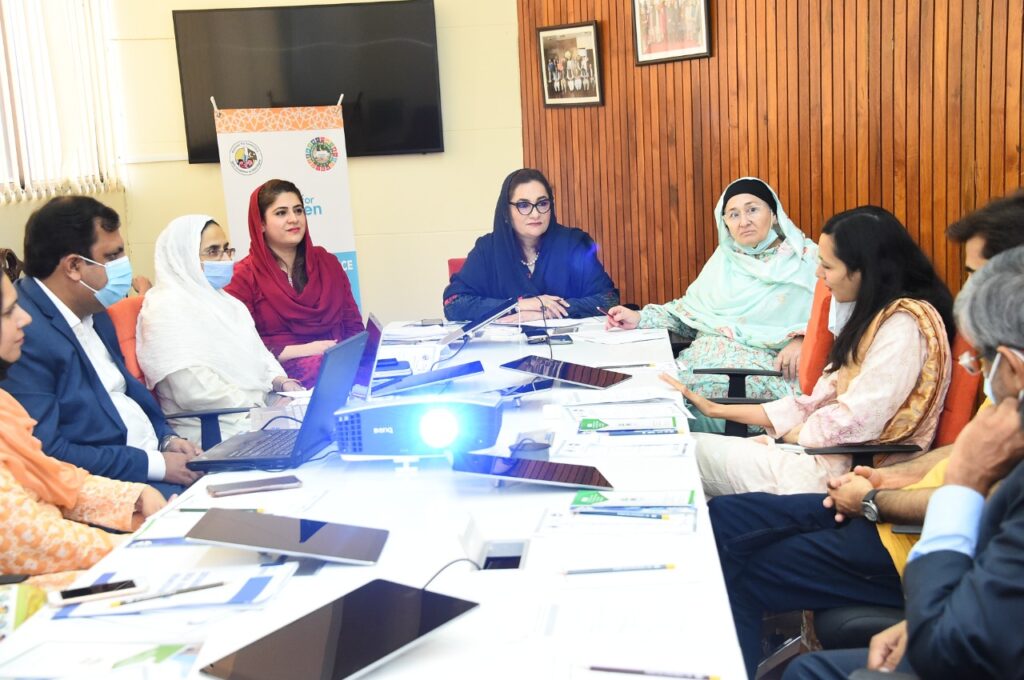Cities for Children along with the Parliamentary Special Group on the SDGs and Child Rights organised a multistakeholder consultation on 3rd and 4th August, bringing together parliamentarians, civil society organisations and relevant representatives from human rights, social welfare and child protection. This was the last event in CfC’s advocacy for street-children series, supported by the Consortium for Street Children. The event brought various stakeholders from child protection agencies, NGOs, the Ministry of Human Rights and the parliament together with the aim of ensuring that policies for “street children” are rooted in their reality.
Chaired by MNA Ms. Mehnaz Akber Aziz, Convenor of the Special Committee on Child Rights, the event on August 4 also featured Ms. Sarah Ahmed, Chairperson of the Punjab Child Protection and Welfare Bureau and Special Coordinator to the CM Punjab, who shared her ongoing work with unaccompanied and abandoned children as well as those found begging on the streets. Mr. Hassan Mangi, Director General of the Ministry of Human Rights, shared his experience in formulating long term prevention strategies supporting communities to keep children with families off the streets, beyond residential care facilities.
Dr. Rozina Khalid from the Ehsaas programme expressed a commitment to reaching children in urban poverty, and supporting them to access their rights through programmes like “Waseela-e-Taleem.” This was expressed as a priority by all civil society organisations present, who shared that one major obstacle to accessing social protection was a lack of identification documents for urban poor communities. Facilitating access to an identity for the diverse communities that street children come from would be a major step towards guaranteeing their rights, and this may demand creative solutions.
The event on 4 August came after a full day of brainstorming between civil society organisations facilitated by Madeeha Ansari from Cities for Children and hosted by the Society for the Prevention of the Rights of the Child (SPARC). Participating organisations included the Lahore-based Search for Justice Pakistan and Child Rights Movement with extensive advocacy experience; Sahil, with experience in child protection; and the Pehli Kiran Schools that serve children from katchi abadis in Islamabad. Iftikhar Mubarak, from Search for Justice Pakistan, shared experience in terms of child protection and juvenile justice legislation at the provincial and federal level which informed the collective recommendations. He reiterated the need for an action plan at the provincial level so that efforts for the challenges faced by street children could be coordinated and strategized.
The recommendations generated and shared by civil society with policymakers included a review of current laws and practice in light of UN General Comment No. 21 on Children in Street Situations, which offers comprehensive guidance on how to apply a rights-based approach rather than approaches that cast children as either victims or delinquents. In terms of education, there is need to move forward on actual implementation of Article 25-A and notification of laws. Mr. Hassan Mangi stressed that roles and responsibilities needed to be defined at the district, tehsil, provincial and federal level to ensure coordination and accountability of all groups involved. The reccomendation also identified a role for civil society to partner with government in terms of reaching out to communities and working with them to offer tailored services. For protection, there is also a need to move forward with and formulate rules of business for child protection laws e.g. in ICT and Punjab – but also, a need to establish protocols and safeguarding processes for all those involved in a child protection response. Ms. Sarah Ahmed described the Punjab Child Protection and Welfare Bureau’s efforts on this front and stated that the bureau was pushing for child protection policy in Punjab in the next few months.
Interest in the issues was shown by parliamentarians Mr. Riaz Fatyana and Ms. Nafisa Khattak, and the Ministry of Human Rights has offered support for formulating a plan going forward. Overall, the event helped create a bridge between policy and practice. As Ms. Rizwana Akhtar from Sahil shared, “we now hope that the voices of street children are heard.”

